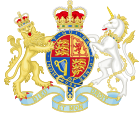- Museums Act 1845
-
Museums Act 1845 
Parliament of the United KingdomLong title An Act for encouraging the Establishment of Museums in Large Towns Statute book chapter 8 & 9 Vict. c. 43 Territorial extent England and Wales Dates Royal Assent 21 July 1845 Status: Repealed The Museums Act 1845 (8 & 9 Vict c.43) was an Act of the United Kingdom Parliament which gave the town councils of larger municipal boroughs the power to establish museums.
Historical background
In the 1830s, at the height of the Chartist movement, there was a general tendency towards reformism in the United Kingdom. This prompted much new legislation to be passed, such as the Parliamentary Reform Act 1832, the Factory Act 1833, the first instance of a Government grant for education in the same year and the Poor Law Amendment Act 1834. The Capitalist economic model had created shift patterns which left workers with free time, in contrast to the agrarian model, and the middle classes were concerned that the workers’ free time was not being well-spent. This was prompted more by Victorian middle class paternalism rather than by demand from the lower social orders.[1] Campaigners felt that encouraging the lower classes to spend their free time on morally uplifting activities, such as reading, would promote greater social good.
In 1835, and against Government opposition, James Silk Buckingham, M.P. for Sheffield and a supporter of the temperance movement, was able to secure the Chair of the Select Committee which would examine "the extent, causes, and consequences of the prevailing vice of intoxication among the labouring classes of the United Kingdom" and propose solutions. Francis Place, a campaigner for the working class, agreed that "the establishment of parish libraries and district reading rooms, and popular lectures on subjects both entertaining and instructive to the community might draw off a number of those who now frequent public houses for the sole enjoyment they afford." [2] Buckingham introduced to Parliament a Public Institution Bill allowing boroughs to charge a tax to set up libraries and museums, the first of its kind. Although this did not become law, it had a major influence on William Ewart and Joseph Brotherton, MPs, who introduced a bill which would “[empower] boroughs with a population of 10,000 or more to raise a 1/2d for the establishment of museums.” [3] This became the Museums Act 1845.
References
- ^ McMenemy, David (2008). The Public Library. London: Facet Publishing. pp. 24–26. ISBN 9781856046169.
- ^ Select Committee on inquiry into drunkenness, Report (1834)
- ^ Kelly, Thomas (1977). Books for the people: an illustrated history of the British public library. André Deutsch. p. 77. ISBN 0233967958.
United Kingdom legislation Pre-Parliamentary legislation Acts of Parliament by states preceding
the Kingdom of Great BritainActs of the Parliament of England to 1483 · 1485–1601 · 1603–1641 · Interregnum (1642–1660) · 1660–1699 · 1700–1706
Acts of the Parliament of Scotland
Acts of the Parliament of Ireland to 1700 · 1701–1800Acts of Parliament of the
Kingdom of Great Britain1707–1719 · 1720–1739 · 1740–1759 · 1760–1779 · 1780–1800
Acts of Parliament of the United Kingdom of
Great Britain and Ireland and the United
Kingdom of Great Britain and Northern IrelandChurch of England Measures Legislation of devolved institutions Acts of the Scottish Parliament
Acts and Measures of the Welsh Assembly
Acts of the Northern Ireland Assembly / of the Northern Ireland Parliament
Orders in Council for Northern IrelandSecondary legislation Categories:- 1845 in law
- United Kingdom Acts of Parliament 1845
- Social history of the United Kingdom
- History of museums
Wikimedia Foundation. 2010.

